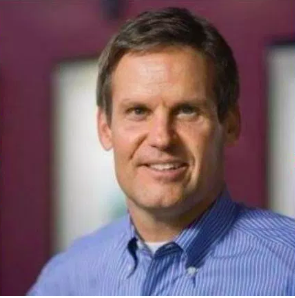What is it they say? Two steps forward and one step backward? That’s sometimes cited as a formula for the pace of social and governmental advance in this country.
And in this state, for that matter. Those who followed the moves of the Tennessee state government in the wake of last year’s election can certainly see the formula at work. Multiple bills to legalize medical marijuana in the state, one way or the other, have been introduced in the General Assembly, and, while opposition remains and none of the bills are guaranteed to pass, all of them have received serious consideration on the front end.

Governor Bill Lee
Count that as a plus, maybe one of two whole steps. On Capitol Hill in Nashville, the air has cleared to the point, for that matter, that the subject of recreational marijuana can be joked about by members of the legislative leadership, as happened in a recent session of the Senate brass with the press when a caucus chair had to endure teasing by his peers when he claimed that he knew no pot-smokers in his county.
But while legislative attitudes have relaxed on that issue, they have firmed up on another one that seemed to have been given a decent funeral only last year. This is the matter of private school vouchers — or, as newly configured, “education savings accounts.” State Senator Brian Kelsey introduced voucher legislation for something like 16 straight years before opting not to do so last year, perhaps because of feedback from his East Shelby County constituents, many of whom now see vouchers as a threat to the municipal school districts they are paying tax money to maintain. But new Governor Bill Lee likes the idea of what he calls school “choice,” and so does Speaker of the House Glen Casada, who, like Lee, hails from Williamson County, a posh Nashville suburb where the idea of privatizing things traditionally part of the governmental sphere is regarded with equanimity.
So maybe at least one step back. (That could turn into multiple steps if any of the education bills dealing with “choice” gets some traction.) The real advance in this year’s session of the legislature is happening in the domain of civil justice, where — as was noted in a recent Flyer cover story — there have been a plethora of bills with bipartisan support seeking to minimize or ameliorate criminal incarceration and to ease the re-entry of convicted felons into society once they have completed their sentences in a satisfactory manner. Criminal justice reform has always been a concern of the political left. That politicians of the right are now also aboard the reform bandwagon is a genuine step forward. Speculations as to their motivations range from the idea that cost-effectiveness comes with reform, to the fact that welcome additions to the labor force are thereby made possible.
In any case, the partisan nature of support for criminal justice reform is one gift horse that should not be looked in the mouth. This is progress, pure and simple, and only the most flagrant kinds of failure could set it back.